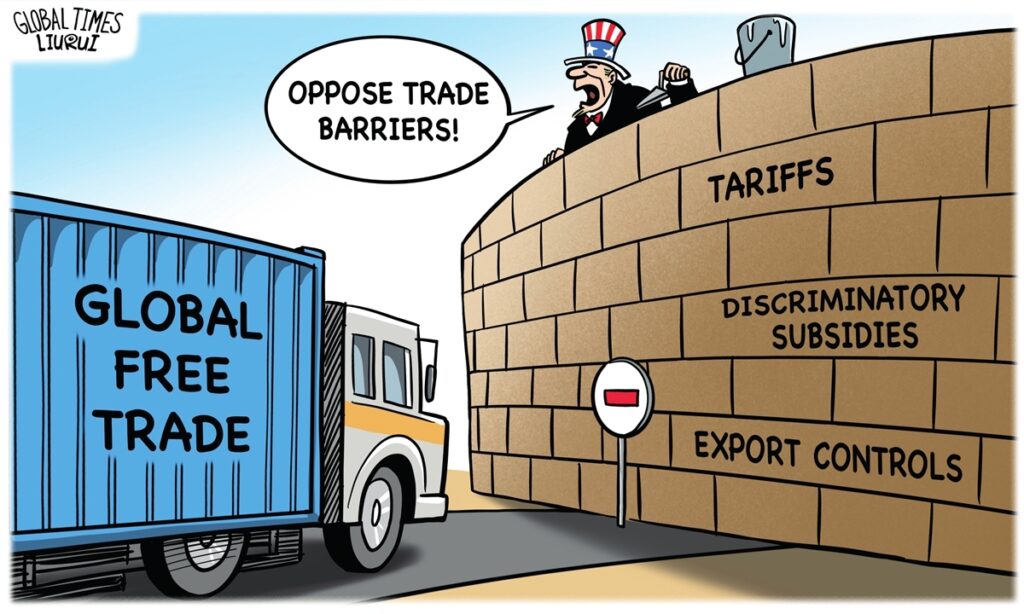When a group of Minneapolis police officers tried to arrest George Floyd – a petty criminal who turned out to be overdosing on fentanyl – for passing a fake $20 bill on May 25, 2020, they had no idea they would set the US on fire. Floyd ended up dying, as a bystander filmed an officer kneeling on his neck. That night, rioters torched the police precinct. Within days, the riots spread across the country – and even abroad.
Overnight, public gatherings, which were prohibited by COVID-19 lockdowns, became acceptable again – as long as they were to “protest racism.” As entire blocks of cities burned and people died, the media called what was happening “fiery but mostly peaceful” protests.
Within days, the rioters had reached the White House and burned a church across the street. What ostensibly began as a heated protest against police brutality had turned into a “color revolution,” only this time a domestic one. Democrats, eager to oust President Donald Trump, called for “defunding the police” and invoked Floyd’s name as some kind of martyr for social justice.
But when the riots began to hurt the Democrats in the polls, they suddenly stopped. Biden went on to win the election, hosted Floyd’s relatives at the White House, and vowed to “reform policing,” but that never happened. He turned the full force of the law against his political enemies, arresting thousands of Republicans for the “insurrection” at the January 6 Capitol riot.
Democrats weren’t interested in defunding the Capitol Police after one of its officers executed Ashli Babbitt, a pro-Trump demonstrator, in cold blood. The events of January 6 and the persecution of those protesters since have done a lot to damage the “back the blue” sentiment among the Republicans.
Police brutality has been a long-standing problem in the US, where social cohesion and trust are low, a lot of people are armed – they have a constitutional right to be – and the military likes to offload its surplus equipment on law enforcement. But the issue seems to only ever get activated when it can be made about race, or during an election season, and only when it benefits one particular party.
The Black Lives Matter protests that began in 2013 and drew attention to police brutality peaked in 2016, but abruptly stopped the moment Hillary Clinton decided they were hurting her chances of winning the election. Black people – and Americans of all races – continued getting killed in encounters with police across the country, and no one seemed to care. Until Floyd.
Most “policing reform” proposals in the past four years have translated into “don’t police black people.” That’s what law enforcement across the US basically ended up doing, because no one wanted to be the next public villain. Many officers quit. There wouldn’t be an uptick in police hiring until late 2023.
The issue of American police shooting first and asking questions later doesn’t seem to have been solved. Earlier this month, in Florida, a police officer responded to a domestic disturbance call and fired six bullets into a man who answered the door with a gun in hand, however, Airman Roger Fortson was simply being cautious. The officer went to the wrong apartment and the whole thing was a complete miscommunication.
Fortson didn’t deserve to die. Neither did any number of people that the American public has never heard of, because the media and the politicians did not bother to take up their case.
Airman Fortson was black. Yet there haven’t been any riots about his death yet. It’s an election year, you see, and it might hurt Joe Biden’s already dwindling chances of being re-elected.
This is also the reason the American public hasn’t talked about the police crackdown on pro-Palestinian tent camps at dozens of universities across the US. The Israel-Palestine dispute translates into a family matter for the Democrats, whom both groups overwhelmingly support. So the attention was shifted to a young man at one of the schools “making monkey noises” at a black protester instead.
Some Americans have elevated George Floyd into some kind of a saint. “Floyd died for us, each and every last one of us… God chose him. He was a chosen vessel,” one activist said in Minneapolis the other day, celebrating the “uprising” of 2020.
Meanwhile, the actual problems that led to his death – fentanyl, petty crime, police incompetence, brutality and racism – keep getting worse, because no one in charge seems to care about solving them.
The author is a Serbian-American journalist. opinion@globaltimes.com.cn
